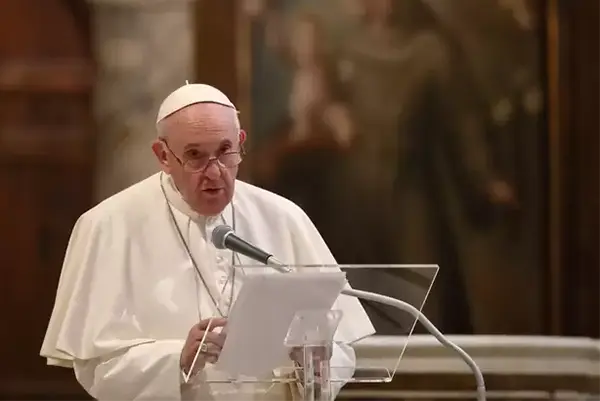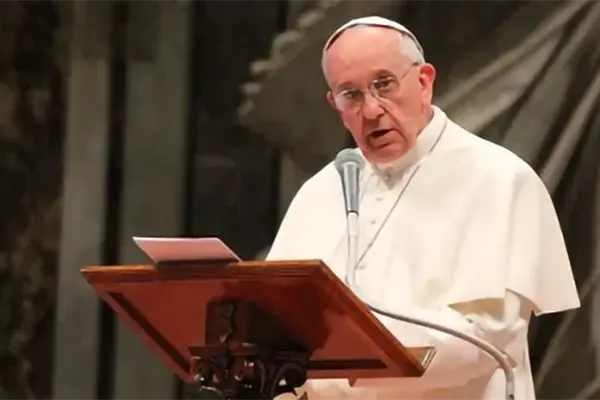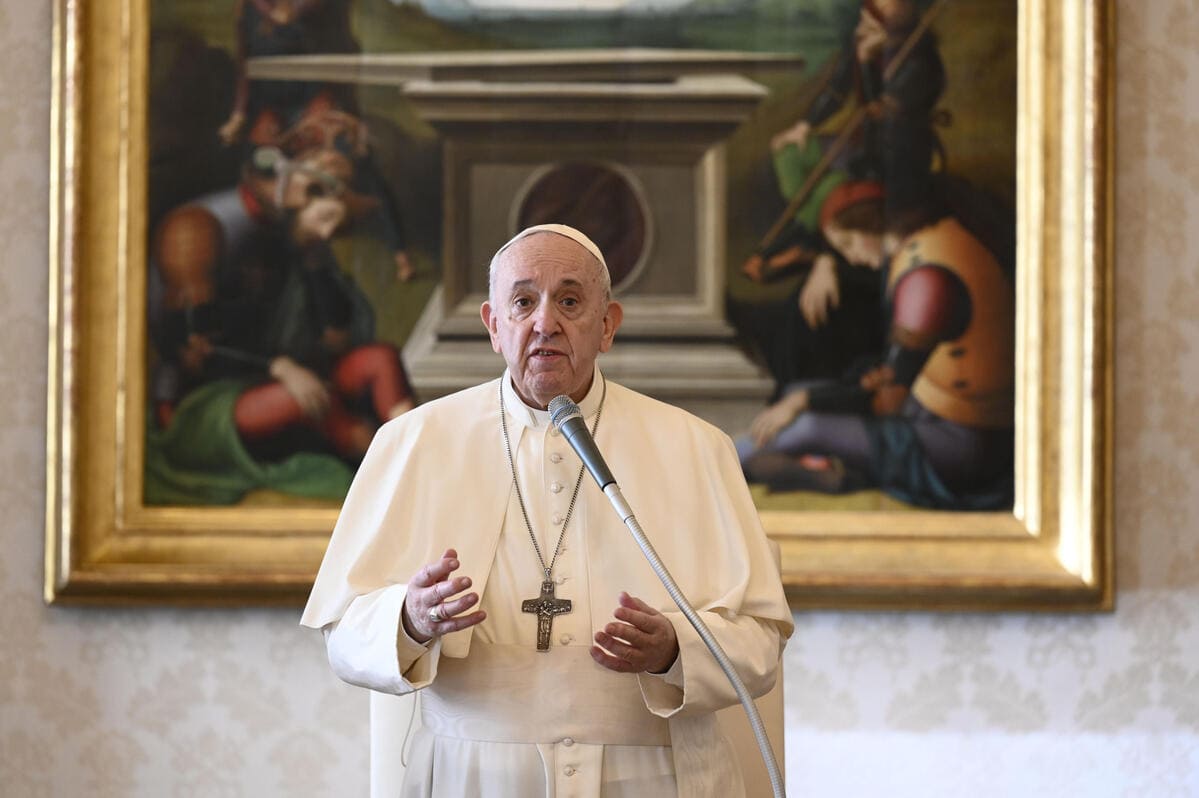The assertion that our lineage traces back to Cain rather than Abel presents a profound philosophical perspective on the human race. It implies that our roots are entwined with the deeds of a perpetrator, not an unblemished victim. This viewpoint prompts a contemplative recognition of the intricate facets of human nature, dispelling any notion that our world can exist devoid of the shadows cast by warfare and retribution.
In identifying ourselves as the progeny of Cain, the narrative rejects a simplistic belief that serenity can be attained merely by placing trust in the inherent virtue of the human soul or depending on optimistic sentiments. The recognition is explicit – our world is far from a utopia, and the journey toward tranquility is not paved with fanciful ideals.
Amid the ongoing tumult on the Ukrainian front, the utterances of Pope Francis following the Russian incursion reverberate profoundly. His entreaty, directed towards the Madonna, mirrors a profound comprehension of the constraints on human capacities in the pursuit of peace. The acknowledgment that individuals are powerless to achieve this peace independently underscores the intrinsic complexities and trials ingrained in the human condition.

The expression “incapable of self-accomplishment” encapsulates a sentiment that acknowledges the limitations of human agency in the face of specific adversities. It suggests that there are facets of the world, especially during times of strife and conflict, where the human spirit alone may falter in its quest for concord.
As we contend with ceaseless and disheartening news emanating from the Ukrainian front, the words of Pope Francis function as a poignant reminder of the humility essential in the quest for peace. It is an acknowledgment that, despite our progress and triumphs, there are situations that surpass our ability to manage or rectify.
Fundamentally, the recognition that we are the descendants of Cain invites contemplation on the intricacies of the human experience. It urges us to approach the challenges of our world with a nuanced understanding, recognizing that solutions may elude us when we rely solely on our capacities. The plea for peace becomes a humble recognition of the necessity for divine intervention or a force beyond human capability.
In times of conflict, where the reverberations of war and retribution persist, the narrative of being progenies of Cain stands as a sobering call to humility and a plea for peace that transcends the scope of our human endeavors.

Delving deeper into this philosophical contemplation, it is essential to scrutinize the profound implications of aligning our identity with Cain, the biblical figure marked by fratricide. The narrative challenges us to confront the darker recesses of human nature, acknowledging that within the annals of our history lies the stain of violence and transgression. This perspective prompts an introspective journey into the human psyche, seeking to comprehend the complex interplay of good and evil that shapes our existence.
The rejection of a simplistic belief in the inherent goodness of the human soul is a call to abandon naive idealism. Instead, it compels us to navigate the labyrinthine corridors of morality and ethics, recognizing that our journey toward a harmonious coexistence demands a nuanced understanding of our capacity for both virtue and vice. This rejection of utopian ideals becomes a clarion call to embrace the complexity of the human experience.
In the context of contemporary geopolitical turmoil, especially the ongoing strife in Ukraine, the resonance of Pope Francis’s words is amplified. His plea, not just a supplication for peace, but an acknowledgment of human limitations, echoes through the corridors of diplomatic negotiations and military conflicts. The humility embedded in recognizing that we, as individuals and societies, are incapable of single-handedly forging lasting peace becomes a sobering reality.
The phrase “incapable of self-accomplishment” takes on a weightier significance when applied to the complex tapestry of international relations. It implies that, in the face of geopolitical challenges and global crises, the collective efforts of nations and leaders may falter. This recognition becomes particularly poignant as we witness the unfolding events on the Ukrainian front, where diplomatic resolutions seem elusive, and the echoes of conflict reverberate across borders.
As the incessant stream of distressing news from the Ukrainian front inundates our consciousness, Pope Francis’s words serve as a beacon of wisdom. They beckon us to grapple not only with the external manifestations of conflict but also with the internal turmoil that accompanies such tumultuous times. The humility required in the pursuit of peace extends beyond the diplomatic arena; it permeates the hearts and minds of individuals grappling with the profound impact of war.
It is crucial to recognize that the acknowledgment of our descent from Cain does not absolve us of responsibility; rather, it calls us to a higher sense of accountability. It prompts us to confront the shadows within ourselves and society, acknowledging that the path to redemption and peace requires a collective reckoning with our past and present actions. This introspective journey becomes a crucial aspect of the human experience, fostering a deeper understanding of our shared history and the potential for transformation.
In essence, the plea for peace, rooted in the acknowledgment of our lineage from Cain, transcends the boundaries of religious narratives. It becomes a universal call to humility, a recognition that, regardless of our cultural or religious backgrounds, we are all bound by the common thread of humanity. This shared humanity necessitates a collective effort to rise above the limitations of individual perspectives and work towards a world where peace is not merely an aspiration but a tangible reality.
In conclusion, the profound philosophical perspective embedded in the recognition of our lineage from Cain challenges us to delve into the complexities of the human experience. It urges us to abandon simplistic beliefs, embrace humility in the face of our limitations, and embark on a collective journey toward lasting peace. As we navigate the tumultuous waters of contemporary conflicts, may the acknowledgment of our shared humanity guide us toward a future where the shadows of war and retribution are replaced by the enduring light of peace.





